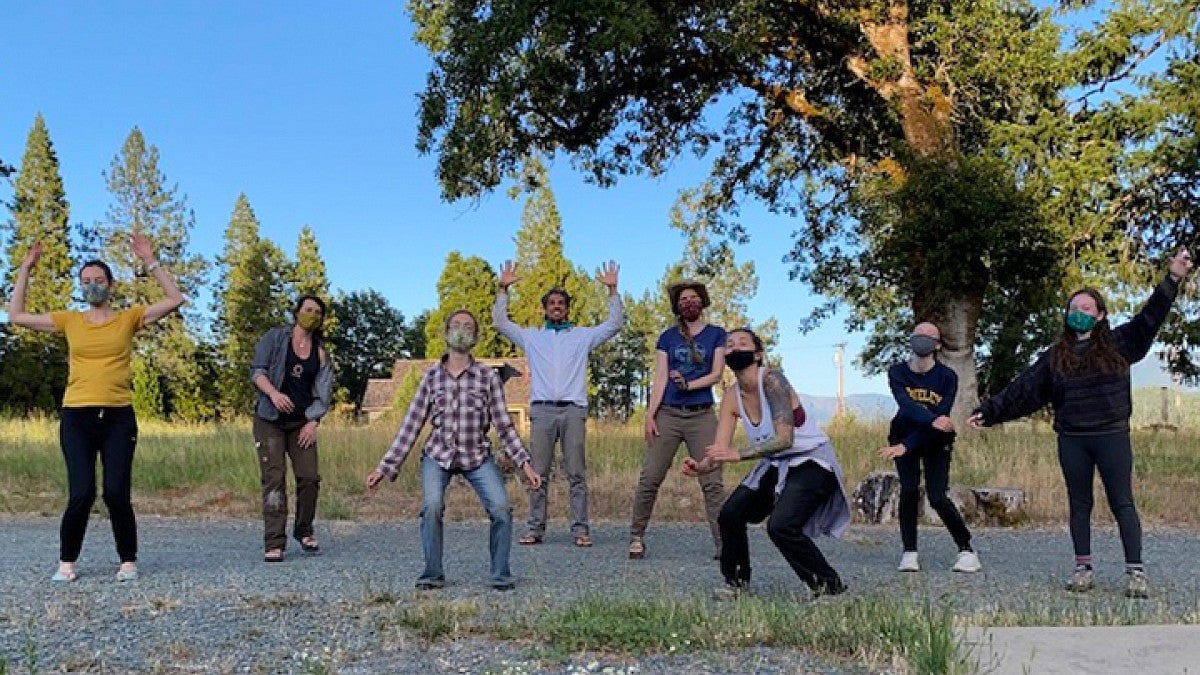Ever wondered how our social interactions and cultural values influence the environment, or how environmental changes shape our societies? If so, then environmental sociology might be the field for you. It’s a fascinating area of study that explores the intricate connections between human communities and the natural world, offering valuable insights into our changing planet and the challenges we face.

Image: socialsciences.uoregon.edu
Environmental sociology graduate programs are designed to equip students with the knowledge and skills necessary to critically analyze and understand the complex relationship between human societies and the environment. They offer a unique blend of sociological theory, environmental science, and social justice principles, preparing graduates for a range of careers in academia, government, non-profit organizations, and the private sector.
Understanding Environmental Sociology: A Multifaceted Field
Exploring the Interconnectedness
Environmental sociology goes beyond simply studying the environment; it delves into the social processes and power dynamics that shape our interactions with the natural world. It examines how social structures like class, race, gender, and geography influence environmental issues, and how environmental changes impact social inequalities. For instance, environmental sociologists might study how climate change disproportionately affects marginalized communities or how social movements mobilize around environmental concerns.
Key Concepts and Concerns
Environmental sociology encompasses a wide range of subfields and theoretical perspectives. Some key concepts include:
- Environmental Justice: This focuses on the fair and equitable treatment of all people in environmental decision-making and the just distribution of environmental burdens and benefits.
- Sustainability: Explores how to meet the needs of the present generation without compromising the ability of future generations to meet their own needs.
- Environmental Movements: Studies the social movements that advocate for environmental protection and social change.
- Environmental Risk and Perception: Analyzes how different groups perceive, assess, and respond to environmental risks, considering factors like social trust, cultural beliefs, and media representations.

Image: www.researchgate.net
Real-World Applications of Environmental Sociology
The insights gained from environmental sociology have significant real-world applications in addressing contemporary environmental challenges. For example, it helps:
- Develop more effective environmental policies that address the social dimensions of sustainability.
- Promote community-based solutions to environmental problems by fostering participation and empowering local communities.
- Improve communication and public engagement around environmental issues through a deeper understanding of social perceptions and attitudes.
- Design sustainable technologies and practices by considering their social and cultural contexts.
Navigating Environmental Sociology Graduate Programs
Finding the Right Program for You
There are numerous graduate programs in environmental sociology across the world, each with its own unique focus and emphasis. When choosing a program, it’s important to consider:
- Faculty Expertise: Research the faculty’s areas of specialization to ensure their interests align with your own. Look for faculty who are actively involved in research and publications related to your chosen subfield.
- Curriculum Structure: Explore the program’s course offerings and the balance between theoretical and applied aspects. Some programs may have a strong emphasis on quantitative research methods, while others may focus on qualitative research and fieldwork.
- Research Opportunities: Look for programs that provide opportunities for fieldwork, internships, and research projects, as these can offer hands-on experience and help you develop your skills.
- Student Support: Evaluate the program’s resources and support services, including financial aid, mentoring, and professional development opportunities.
Gaining Valuable Skills and Knowledge
Environmental sociology graduate programs equip students with a diverse range of skills and knowledge relevant to both academic and practical pursuits. These include:
- Theoretical Understanding: Gaining a strong theoretical foundation in environmental sociology, including various sociological theories, critical perspectives, and interdisciplinary approaches.
- Research Methods: Developing skills in both quantitative and qualitative research methods, allowing you to conduct rigorous empirical studies and analyze complex social data.
- Critical Analysis: Learning to critically analyze environmental problems and policies, identifying the underlying social, political, and economic factors at play.
- Communication and Advocacy: Enhancing communication skills to effectively convey complex research findings and advocate for social change through publications, presentations, and engagement with policymakers and the public.
Careers in Environmental Sociology
Beyond Academia: Diverse Career Paths
An environmental sociology degree opens doors to a diverse range of career paths beyond traditional academia. Graduates often pursue careers in:
- Government Agencies: Working for federal, state, or local government agencies, developing and implementing environmental policies, conducting research, and engaging in public outreach.
- Non-Profit Organizations: Contributing to environmental organizations, focusing on advocacy, community organizing, education, and research on environmental issues.
- Private Sector: Working for organizations involved in sustainable development, climate change mitigation, renewable energy, and corporate social responsibility.
- Research and Consulting: Conducting independent research, consulting for organizations on environmental policy, social impact assessment, and community engagement.
The Future of Environmental Sociology
Emerging Trends and Challenges
Environmental sociology is a dynamic field, constantly evolving to address new challenges and emerging trends. Some key areas of current focus include:
- Climate Change: The impacts of climate change on social inequalities, migration, and conflict, and the role of social movements in addressing climate change.
- Urbanization and Sustainability: The challenges of creating sustainable cities and urban environments, including issues related to transportation, energy consumption, and waste management.
- Biodiversity Loss and Conservation: The social and cultural dimensions of biodiversity conservation, including Indigenous knowledge, community participation in conservation efforts, and the role of consumer choices.
- Technological Advancements: The social implications of new technologies, such as renewable energy, artificial intelligence, and genetic engineering, on the environment and society.
Environmental Sociology Graduate Programs
Conclusion
Environmental sociology offers a critical and interdisciplinary lens for understanding the complex relationship between humans and the environment. Graduate programs in this field provide students with the tools and knowledge they need to become leaders in addressing the pressing environmental challenges of our time. Whether you’re passionate about research, policy, activism, or sustainability, exploring environmental sociology can open doors to a fulfilling and impactful career path.





